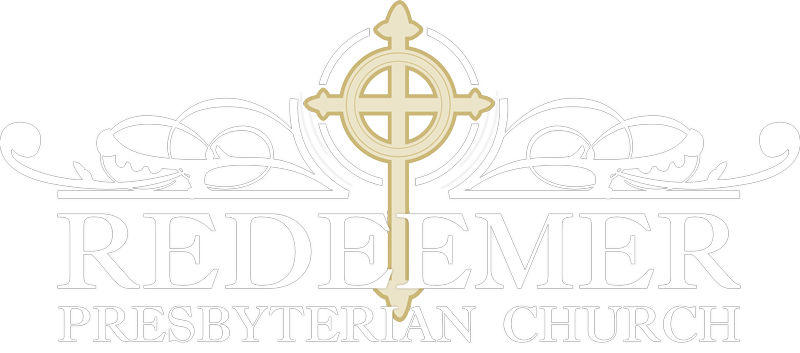Sunday Morning Worship 8:30 AM and 11:00 AM
Pastor’s Corner October 2005
The following was published in our monthly newsletter, the Redeemer Report.
Why study Christian History? Very simply, understanding Christian History can help us pull back from the rush of world events. We can uncover precedents from the past, showing how God has worked with others and will work with us. We can gain perspective on our current situation in light of past experience. A wise person wrote- “We can develop a sense of continuity and see how the unfolding of God’s purposes transcends any single generation, century, denomination, geography, or ideology”.
Redeemer is a small part of a larger movement that God has been orchestrating since the glorious proclamation of redemption in Genesis 3:15. Christ is most assuredly building His Church. In a real sense, “Church History” is the record of the triumphal march of our King and Savior, and it witnesses to the truth of the Word, that the gates of hell shall not prevail against the Church. I will spare you the various clichés concerning the need to study history, instead, consider the prophetic words of Jeremiah, spoken to the Church at a time when they had lost their way and their identity as the people of God and more closely resembled the surrounding pagan culture:
Thus says the Lord:
“Stand by the roads, and look,
and ask for the ancient paths,
where the good way is; and walk in it,
and find rest for your souls.
But they said, ‘We will not walk in it.’
Jeremiah 6:16
In order to be the agents of transformation God desires His Church to be, Jeremiah doesn’t encourage them to rush to the local Christian bookstore in order to discover new methods or how to preach a more “relevant” message. Jeremiah doesn’t round up the elders of the people and send them to a seminar or special training on how to reach the “Babylonian” mind. Instead, the prophet encourages the people of God to consider how God has historically directed His people. Jeremiah exhorts God’s people to observe and emulate those who walked in the “good way”. Unfortunately, the people of Jeremiah’s time attempted to throw off the old ways, perhaps seeing them as irrelevant, unpopular, or difficult. Scorn for their own history and refusal to heed the prophetic exhortation led to their captivity instead of the spiritual peace and rest that could have come to them. Rather than transforming the culture, they were sadly assimilated by it.
We are in a similar day. The contemporary church has largely lost touch with its identity and seems to be more concerned with acceptance by the wider culture than in walking in the “good way”. Contributing greatly to our current state is the ignorance of Christian History- perhaps even the scorn of it. Chronological snobbery has led us to act like our era is the only one that has ever been significant. There is perhaps no more urgent time than now, especially for the American Church, to dust off the annals of God’s faithfulness over the generations and begin to walk in the “good way” again. The American Church has experienced times of reformation, revival, and awakening before and it can happen yet again. The common denominator for such times is the ingredient needed now- an uncompromising zeal for the whole counsel of God to be preached, taught and lived, to walk the “ancient paths” in the “good way”. The effectiveness of the Church in any given era has always been relative to its hold on God’s soveren hand and to clear instruction on its place in the world.
The Fall months at Redeemer will see a special focus on Christian History. Our Sunday evening gatherings will include ten lessons on the History of the Christian Church taught by a seminary colleague of mine, Dan LaGue. Further, on Reformation Sunday, October 30, we will welcome to our pulpit Dr. David Calhoun. Dr. Calhoun is the longtime professor of Church History at Covenant Theological Seminary in St. Louis and the foremost expert on American Presbyterian History. He will be preaching and teaching at all services October 30.
In the Lamb,
Pastor Tony Felich
Categories: Newsletter
